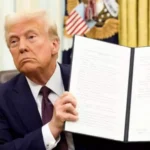
Delhi’s Rouse Avenue Court granted Chief Minister Arvind Kejriwal bail in the money laundering case related to the alleged excise policy scam. Kejriwal, who has been in jail since March 21, received bail on a bond of Rs 1 lakh. The court rejected the Enforcement Directorate’s (ED) request to delay the bail order for 48 hours. Conditions for the bail include prohibiting Kejriwal from hampering the investigation or influencing witnesses. Kejriwal must also appear before the court as required and cooperate with the investigation. The ED plans to challenge the decision in the Delhi High Court.
Background
The excise policy case involves alleged financial irregularities, which led to a high-profile investigation by the ED. The case has attracted significant attention and sparked various political reactions. Kejriwal’s arrest and subsequent bail have been central to this ongoing controversy.
Court’s Decision
Special Judge Niyay Bindu issued the bail order after hearing arguments from both the prosecution and defense counsel. Kejriwal’s judicial custody was initially extended until July 3. The judge reserved the order earlier in the day after hearing arguments from the ED, which attempted to link Kejriwal to the alleged proceeds of crime and co-accused individuals. The defense countered that the prosecution lacked substantial evidence against the AAP leader.
Political Reactions
Following the grant of bail, AAP leader Atishi commented “Satyamev Jayate” (truth alone triumphs), reflecting the party’s stance. The case continues to be a focal point of political debate and public interest.
Kejriwal’s bail and the conditions imposed highlight the judicial process’s ongoing scrutiny and the investigation’s complexities. The ED’s intention to challenge the trial court’s decision in the Delhi High Court adds another layer to the unfolding legal and political drama.




































Leave a Reply